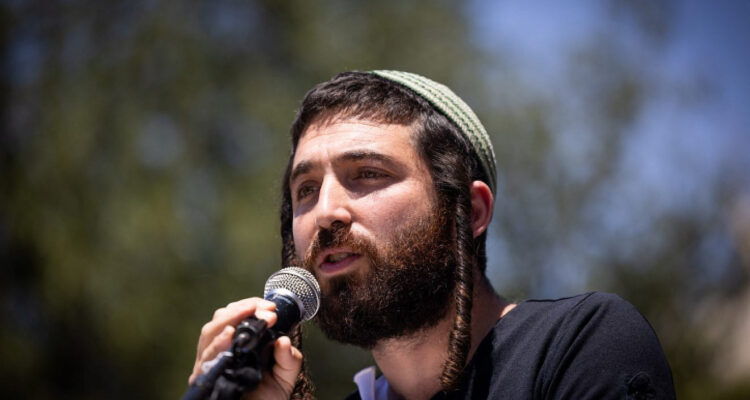Although the War Cabinet unanimously supported the deal, there was a split in the full Cabinet citing danger to IDF troops and the need to release all hostages.
By Amichai Stein, JNS
Ever since Israel’s government approved a hostage-for-prisoners deal with Hamas, the Israeli public has been debating whether it was the right thing to do.
Some claim, that because the Israel Defense Force’s advances have reached the point that almost all of the northern part of the Gaza Strip is in its control, Israel needs to continue the pressure so more hostages would be released. The other opinion is: “Take what you can get before it’s too late.”
Although the War Cabinet unanimously supported the deal, there was a split in the full Cabinet—among the religious Zionist parties in the coalition.
Otzma Yehudit, Itamar Ben-Gvir’s party, claims that this is a dangerous deal that endangers IDF soldiers and even the hostages themselves. On the other side is Religious Zionism, Bezalel Smotrich’s party, which in the beginning opposed the deal, but later changed its mind.
JNS spoke to two MKs from these two parties, to get an insight into their differing views
JNS asked Yitzhak Kroizer, an Otzma Yehudit Knesset member: “Can you explain why your party ministers voted against the deal?”
Kroizer: “The decision to oppose the hostage deal was a difficult decision. On the one hand, there is an emotional desire of every Israeli and Jew around the world, to see the hostages return home. And on the other hand, there is a need for courage to look at reality and understand that the deal will cause families to be torn apart, that some members of a family will return and some won’t.
“Hamas said that it transfers numbers, not names, so there will be families that you will need to tell that some of their relatives will be released, and some that you will need to tell them no. This is a selection that hasn’t happened since the Holocaust.
“There are IDF soldiers in the midst of combat, and the ceasefire might jeopardize them, such as happened during ‘Operation Protective Edge’ in 2014 when soldiers were kidnapped during a ceasefire.”
JNS: “So what in your view, is a deal, for which you and your party could have voted?”
Kroizer: “We think that the correct plan is one in which all the hostages are returned. Those people for whom the State of Israel is responsible, and were kidnapped—the state should do everything to get them home. There are also hostages from the past.
“The military effort has forced Hamas to beg for a ceasefire—but, once again, we are winning the battle and losing the war. Hamas needs the ceasefire to reorganize and prepare a new assault. We are playing into its hands and not taking the initiative. Therefore, it is necessary to continue to crush Hamas.”
JNS: “But, if you don’t accept this deal, there is a chance no hostages will be released at all?”
Kroizer: “Who says the current deal will allow us to get all the hostages home in the end? Everyone needs to come back home. How do we know now what price we will pay for all the other hostages?
“A deal that does not involve the completion of the military effort, and the release of all the hostages, is a mistake.”
JNS asked Zvi Sukkot, a Religious Zionism Party Knesset member: “Why did your party’s ministers change their stance and support the deal in the end?”
Sukkot: “We thought that the details that were published regarding the deal before the Cabinet meeting would not succeed in achieving the goals of the war, which is to destroy Hamas, or that it would make achieving the goals much more difficult. During the Cabinet meeting, our ministers had conversations with a senior defense official who promised the ministers that there would be no change in the goals of the war and that the deal would not endanger these goals.”
JNS: “But still, this is a deal with a terrorist organization, are the ministers not worried that something could go wrong?”
Sukkot: “The fear exists. But we know what Israel’s plans are for the ceasefire. And give credit to the security establishment—Hamas leader Yahya Sinwar is not always smarter than us.”
JNS: “You have no fear that the current deal, which does not include all the hostages, will harm the release of the rest?”
Sukkot: “We are in a situation where there is no option to release all the hostages. If it existed, we would have insisted on it. So, it is better to take what is on the table, because that’s what is possible at the moment.
“We think this deal emerged because we are pushing Sinwar to the wall. And the others will be released when we continue to strike Hamas.”





